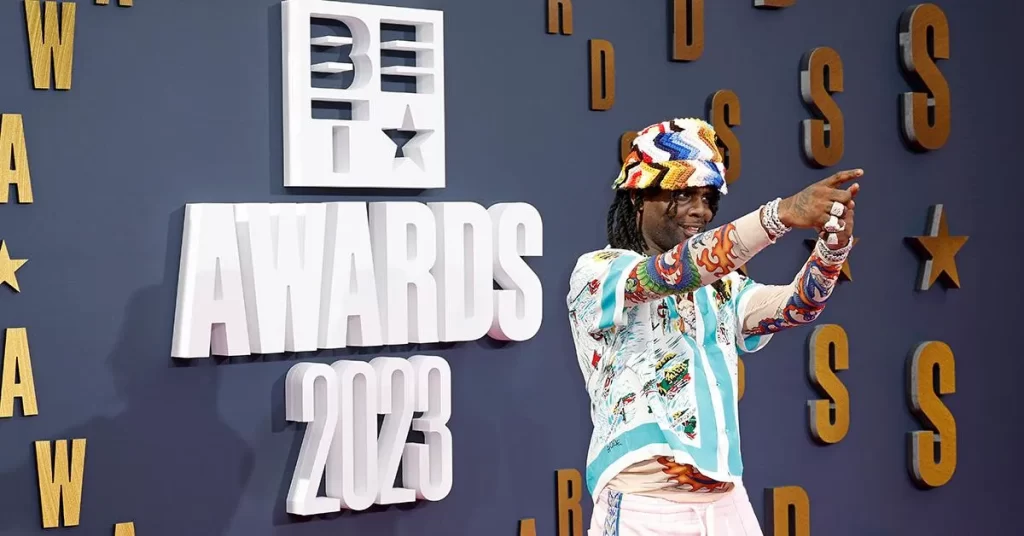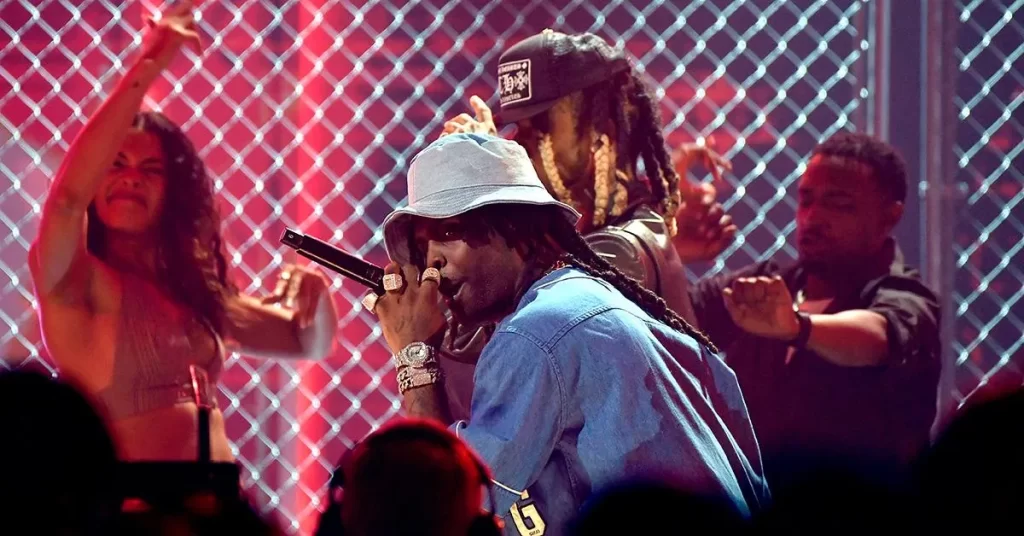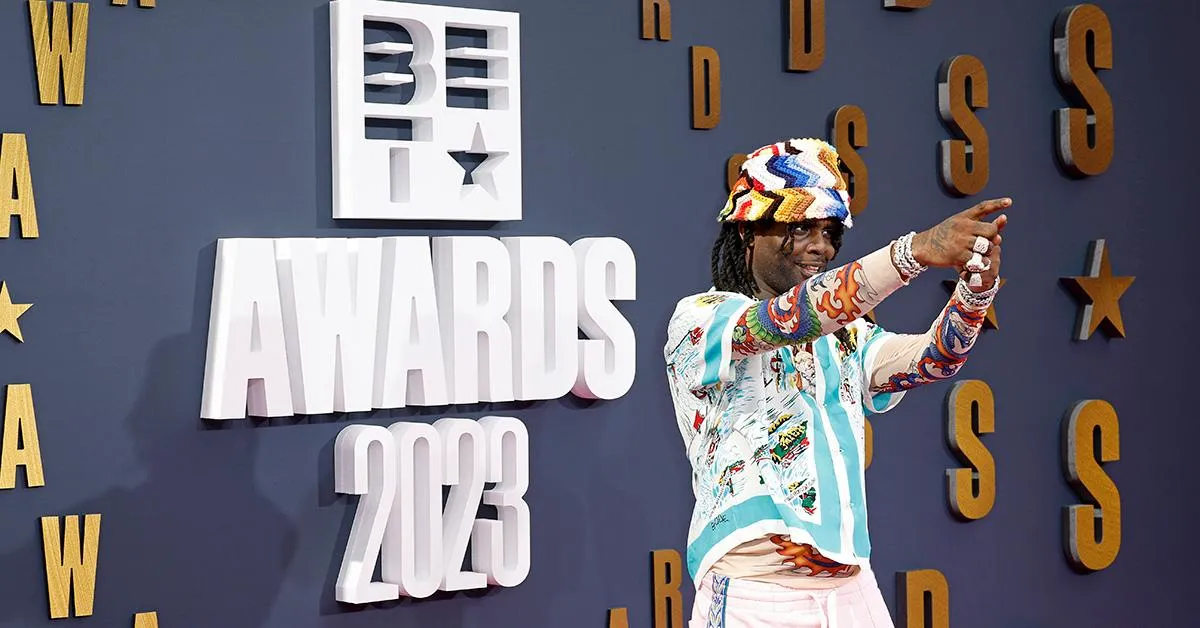In 2012, Chicago rapper Chief Keef burst onto the music scene with his viral hit “I Don’t Like”. His unique sound and controversial lyrics quickly gained him a large following and catapulted him into mainstream success. However, this success was short-lived as he soon found himself in the midst of numerous legal troubles and controversies.
One of the most notable moments in his career was when he was banned from BET for almost a decade. This ban left many wondering why such a successful and popular artist was not welcome on one of the biggest platforms for hip hop music. In this article, we will delve into the reasons behind Chief Keef’s ban from BET and how it affected his career.
Who is Chief Keef?
Before delving into the reasons behind Chief Keef’s ban from BET, let’s first understand who he is as an artist. Born Keith Farrelle Cozart in Chicago, Illinois, Chief Keef rose to fame at the young age of 16 with his breakout hit “I Don’t Like” featuring Lil Reese. The song gained traction on YouTube and eventually caught the attention of Kanye West, who remixed it with other artists.
Following the success of “I Don’t Like”, Chief Keef signed to major record label Interscope Records and released his debut album “Finally Rich” in 2012. The album received mixed reviews but solidified Chief Keef as a rising star in the rap industry. He continued to release projects and collaborate with big names in the industry, including Kendrick Lamar and Gucci Mane.
However, Chief Keef’s career was marred by legal issues, including multiple arrests for drug possession, assault, and probation violations. He also faced backlash for his controversial lyrics and behavior, such as flashing guns and making threats against other rappers on social media.

The BET Ban
In 2012, Chief Keef was slated to perform at the BET Awards, one of the biggest platforms for hip hop and R&B artists. However, he never took the stage and instead found himself banned from the network for almost a decade. This ban left many fans and industry insiders wondering what could have caused such a drastic decision.
Refusal to Appear on 106 & Park
One of the earliest reasons cited for Chief Keef’s ban from BET was his refusal to appear on their popular music countdown show, 106 & Park. In an interview with Complex Magazine, the rapper revealed that he was invited to appear on the show but declined the invitation as he was not a fan of the host, Bow Wow.
This decision did not sit well with BET executives, who took it as a sign of disrespect towards the network and its platform. Many people saw this as a missed opportunity for Chief Keef to gain more exposure and reach a wider audience through the show. As a result, they believe that this may have been the catalyst for his eventual ban from the network.
Social Media Criticism
Another potential reason for Chief Keef’s ban from BET is his criticism of the network on social media. In 2013, he took to Twitter to express his frustration with the lack of support he received from BET. He also claimed that they did not play his music videos and only focused on promoting mainstream artists.
This public criticism of the network, combined with his refusal to appear on their shows, may have contributed to his ban. BET may have seen his comments as unprofessional and detrimental to their image, leading them to take action against him.
Threats of Causing Trouble
Perhaps the most controversial reason behind Chief Keef’s ban from BET is his alleged threats of causing trouble if he were to attend the awards show. In an interview with VladTV, the rapper claimed that he was banned from the BET Awards because he said he would “cause a scene” if he were to attend.
This statement raised red flags for BET and may have been seen as a potential threat to the safety of other artists and attendees at the event. As a result, they may have taken preemptive action by banning Chief Keef from attending the awards show.
The Impact on Chief Keef’s Career
Following his ban from BET, Chief Keef’s career took a downward spiral. While he still maintained a loyal fan base, he failed to achieve the same level of mainstream success that he had before. He continued to release music and collaborate with other artists, but his legal troubles and controversial behavior overshadowed his musical talent.
Many people believe that his ban from BET played a significant role in his lack of commercial success. Being banned from one of the biggest platforms for hip hop music meant that he was missing out on opportunities for exposure and reaching a wider audience. This, combined with his ongoing legal issues, led to a decline in his popularity and relevance in the industry.

Conclusion
In conclusion, Chief Keef’s decade-long ban from BET remains a controversial topic in the rap industry. While the exact reasons behind the ban are still unclear, it is evident that his refusal to appear on their shows, social media criticism, and alleged threats all played a part in the network’s decision.
Despite this setback, Chief Keef continued to make music and maintain a dedicated fan base. His ban from BET may have hindered his mainstream success, but it did not stop him from being one of the most influential and polarizing figures in hip hop. As he continues to navigate through the ups and downs of his career, it is clear that Chief Keef will always be remembered as an artist who pushed boundaries and left a lasting impact on the rap scene.
